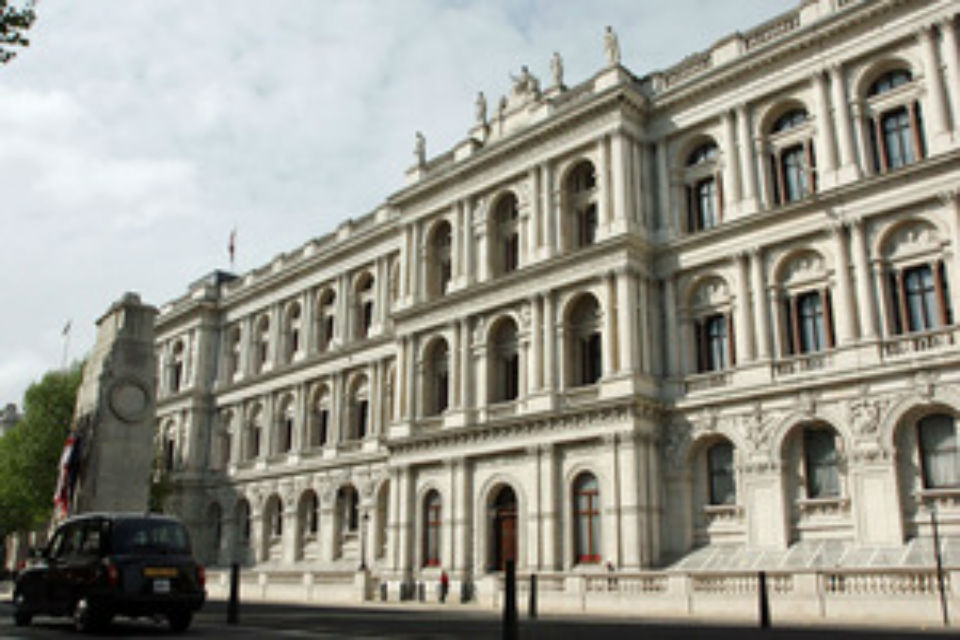"Today the UK has announced a further $1.5 million of funding to protect humanitarian workers"
Statement by Ambassador Lyall Grant of the UK Mission to the UN, to the Security Council meeting on Protection of Civilians

I would like to warmly thank the speakers Deputy Secretary-General Jan Eliasson, ICRC President Peter Maurer and Director of The Liaison Office Masood Karokhail, for their powerful briefings today.
Eleven years ago today, a heinous attack on the UN compound in Baghdad killed 22 UN staff members, including the Secretary General’s Special Representative, Sergio De Mello. I, like many others in this room, paid my respects to their memory at a moving ceremony downstairs this morning.
It is appalling that, eleven years on, attacks against humanitarian workers still continue. Indeed, the problem is getting worse, with 2013 providing a record high for the number of attacks on aid workers, a 66 percent increase on 2012. And 2014 is on course to exceed even that number. 79 aid workers have already been killed this year, more than were killed in the whole of 2012. This issue cannot be ignored. And that is why the United Kingdom arranged this briefing to the Security Council today.
This Council has just visited Somalia and South Sudan, which are two of the top five countries in the world most affected by attacks on aid workers. Such attacks are a war crime. Exactly the sort of crime that we charged the International Criminal Court with prosecuting, as we heard in The Hague last week.
Across the world, aid workers are operating in unprecedentedly dangerous environments. Four of the top five countries for attacks – Afghanistan, South Sudan, Sudan (including Darfur) and Syria – are on the Council’s agenda. And aid workers are facing unprecedented threats. A rise in asymmetric conflicts and non-state actors poses new challenges. The reality is that humanitarian workers are viewed as a soft target. This is a moral outrage and totally unacceptable.
With the increasing demands on the United Nations to operate in increasingly insecure situations, it is clear that humanitarian workers will remain in the firing line. And I applaud the bravery of UN and other international and national humanitarian staff, risking their lives to get aid to people in need. Today the United Kingdom has announced a further $1.5 million of funding to protect humanitarian workers, including support for NGO Safety Officers in Afghanistan, Syria, Iraq and Libya.
The increasing disrespect for international humanitarian law in these situations is of particular concern. As Valerie Amos has repeatedly told this Council, “even wars have rules”. Attacks on humanitarian workers and their vehicles, supplies and facilities have an impact not only on the safety, security and psychology of those workers, but also on their ability to reach people in need. The international community must come together to ensure greater compliance with international humanitarian law, and accountability for those that flout it.
But as Mr Karokhail powerfully reminded us this morning, it is important to recognise that the vast majority – eighty percent – of attacks are directed at national, locally-recruited staff. We heard first-hand from him about the impact of insecurity on the frontline of humanitarian operations in Afghanistan. It is the same pattern elsewhere. In Bunj, in South Sudan recently, we saw fatal, ethnically motivated attacks on South Sudanese aid workers. The shift towards managing risk by using local staff to deliver aid will only put these staff more and more at risk of attack.
Against this worsening background, it is this Council’s duty to act. As colleagues have recalled we have a number of tools at our disposal. There is condemnation. The Council statement on the killing of aid workers in South Sudan was a welcome step and raised awareness of the attack. There is direct action. We raised the Bunj attack directly with President Kiir last week, calling on him to speak out clearly against such attacks, irrespective of who committed them. We should use our legislative role to ensure that peacekeeping operations are mandated and equipped to create safe conditions for the rapid and unfettered delivery of aid. Special Political Missions have a key role in promoting institutions to ensure accountability for attacks. And we should also, in cases of persistent behaviour, consider sanctions, including against non-state actors.
Eleven years ago, this Council came together to agree resolution 1502, in the wake of the attack on the UN compound in Baghdad. And after today’s briefing, there is a strong case for renewed Security Council action. We shall therefore propose a new resolution on how the Council can better protect humanitarian workers. It is time for this Council to be heard again.